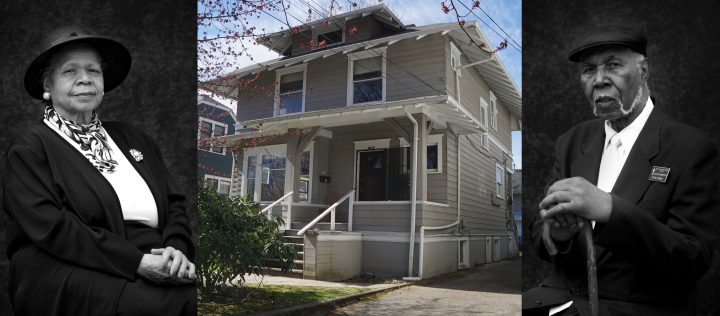
A Black arts center committed to preserving community
A Black arts center committed to preserving community

“My Economy” tells the story of the new economic normal through the eyes of people trying to make it, because we know the only numbers that really matter are the ones in your economy.
In 2019, Elisheba Johnson and three other artists decided to rent a home in Seattle’s Central District, the city’s historically Black neighborhood. The house had belonged to a grandmother of one of the artists, who needed to sell some of the six homes in the neighborhood her family once owned. For the artists, renting the house was both an artistic experiment and a way of giving the space back to the Black community.
That’s how Wa Na Wari was born. It’s an art space and cultural center that holds exhibitions, throws an annual block party and gives out free weekly meals.
But for community-focused spaces, it can be difficult to fully fund operations while staying responsive and connected. For Wa Na Wari, that means operating as a limited liability company with a fiscal sponsorship, which allows the space to accept tax-deductible donations and government grants.
“The nonprofit system has not served Black and brown people very well,” Johnson said. “We’re interested in how we can serve the community in ways that they need but also funnel money into the organization.”
When a community member has an immediate need, Wa Na Wari can hire someone for an afternoon — say, to clean up the backyard — and put money in their pocket.
“We believe in the African idea of collective economics,” Johnson said. “We can’t just think about ourselves, so how can we share but also build together?”
To hear the rest of Johnson’s story, use the media player above.
Let us know how your economy is doing using the form below, and your story may be featured on a future edition of “My Economy.”
There’s a lot happening in the world. Through it all, Marketplace is here for you.
You rely on Marketplace to break down the world’s events and tell you how it affects you in a fact-based, approachable way. We rely on your financial support to keep making that possible.
Your donation today powers the independent journalism that you rely on. For just $5/month, you can help sustain Marketplace so we can keep reporting on the things that matter to you.


















